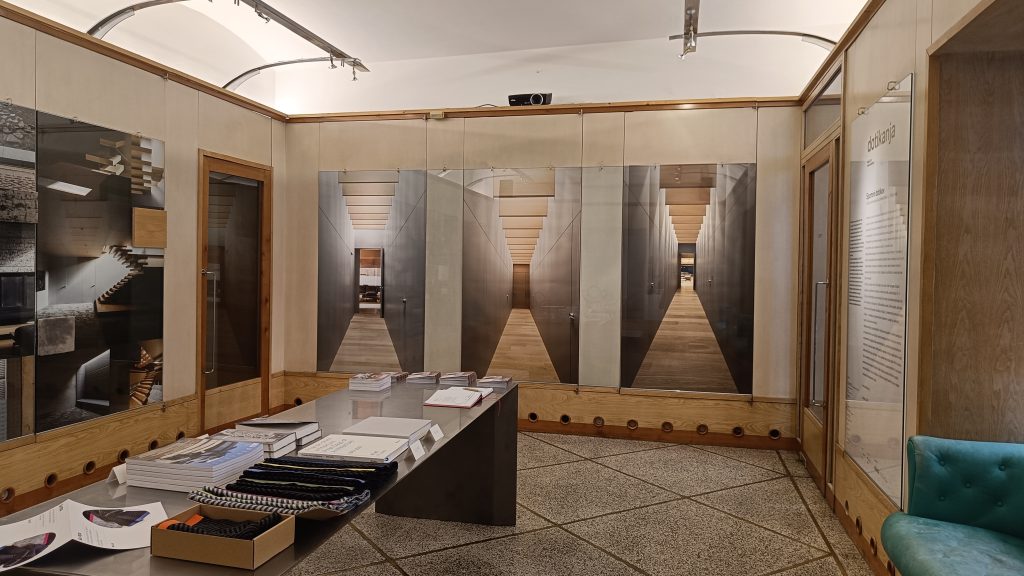The European Cultural Heritage Skills Alliance CHARTER, an Erasmus+ funded project, has published a new report presenting all the findings and conclusions arising from the regional case studies in the Basque Country (Spain), Sibiu (Romania), Bremen (Germany), Alentejo (This report synthesises how cultural heritage is integrated into regional development policies and strategies and examines the sectorally integrated dynamics within these ecosystems.

CHARTER Alliance publishes findings from its six regional case studies
This report is based on six regional workshops that took place from October 2021 to June 2023. These workshops brought together a variety of stakeholders from each region's heritage ecosystem, who participated in presentations, panel discussions, surveys, focus groups and interactive working sessions to provide CHARTER with insights and data. At the same time, stakeholders were introduced to CHARTER's models, tools and assumptions in order to test and share their feedback and thus contribute to improving the project's results. In addition, field visits to observe best practices and dialogue with experts in their daily professional work environments helped to further understand the unique characteristics, projects and assets of each host region.
How do cultural heritage stakeholders interact with each other?
Case studies highlight the fragmented dynamics within ecosystems. Despite the willingness of stakeholders to work together, short-term project efforts and isolated approaches hinder system integration. Moreover, the process is made even more challenging by the lack of mutual understanding between education providers and heritage professionals. In this context, the Charter proposes to strengthen medium- and long-term cooperation, to improve the coordination of vertical and horizontal policies and to foster trust between ecosystem actors. The involvement of private sector employers and professionals from related sectors such as tourism and construction is also crucial. In this context, the report identifies regional authorities as key actors in promoting cooperation within heritage ecosystems. Their local knowledge is essential to mobilise stakeholders, although the involvement of self-employed entrepreneurs and private companies remains a challenge. Regular networking opportunities and a sector-integrated approach are recommended to strengthen ongoing dialogues and cooperation.
What do regional examples tell us about education and training?
Despite their fragmentation, regions show the potential for innovative education and training solutions that foster creativity and adapt to their challenges. Greater networking and cooperation between stakeholders can increase the scalability of successful initiatives. The establishment of regional and interregional skills partnerships is proposed to increase the impact of local efforts and improve knowledge circulation. The report highlights the lack of comprehensive long-term cultural heritage strategies, stressing the need for systemic approaches to assess and address skills gaps and mismatches. Recommendations include prioritising Continuing Professional Development (CPD), promoting micro-credentials and strengthening skills management through collaboration and data-driven policies. In the specific case of crafts and craft-related competences, there is a high risk that these skills will disappear in all the regions studied, some of which have already been lost. Urgent action is needed at all levels of governance to revive these skills, including recognition of non-formal learning and ensuring that traditional crafts are eligible for EU funding.
Continue reading the full report HERE.
- More about CHARTER Alliance: https://charter-alliance.eu/
- Subscribe to the newsletter: https://bit.ly/newsletter-CHARTER
ABOUT THE PROJECT
CHARTER, the European Cultural Heritage Skills Alliance, brings together and represents the full spectrum of the cultural heritage sector in Europe. 47 project partners are working to demonstrate the value of cultural heritage and create a resilient and responsive sector.
The Charter aims to create a lasting, comprehensive strategy to provide Europe with the necessary cultural heritage skills to support sustainable societies and economies.
The Erasmus+-funded project is mapping the sector's current and future needs in order to bridge the skills gap and the mismatch between education and careers.




